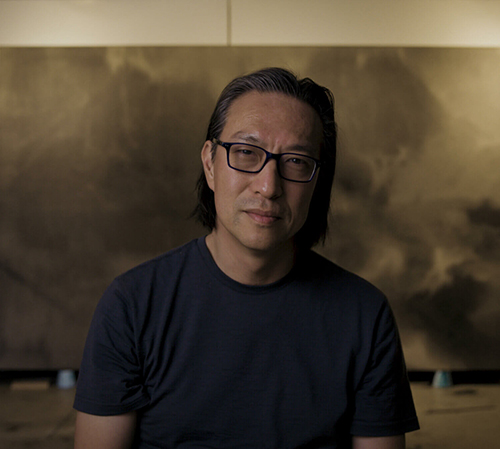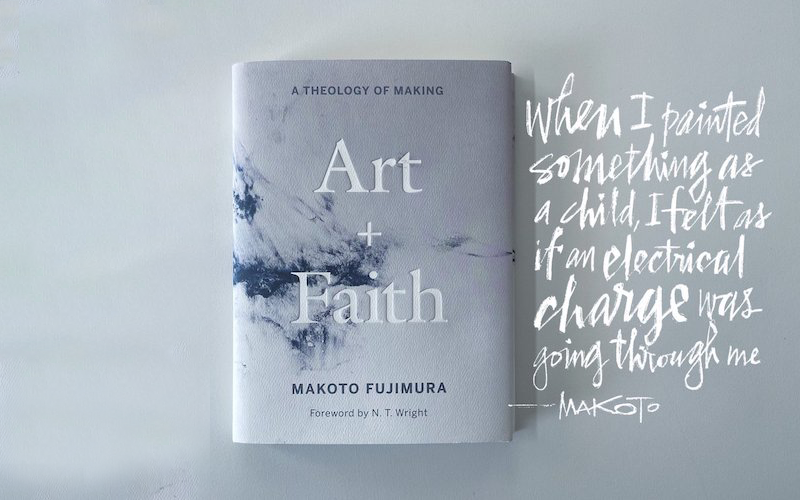Review: Art and Faith by Makoto Fujimura
Makoto Fujimura is a Japanese-American painter who thinks deeply about his vocation of artist and how this intersects with and enlivens his Christian faith. He argues that creating art – using the imagination – is a theological process, but one that is never-the-less marginalized both by an economically rational society and a church sometimes infected by utilitarianism.
For the church, first of all, art can be important but ultimately marginal to the process of evangelization. But Fujimura argues against what he labels a ‘plumbing’ outlook, which values ‘fixing’ over a more inclusive and generous idea of what Christian life entails. In doing so, he can be provocative, arguing that the church can be too focused on being ‘useful’ rather than giving love generously. He suggests that Jesus’ ministry was to those society deemed ‘useless’.

Fujimura points to how often beauty is mentioned in the Bible and argues that upholding beauty – including simply seeing the beauty in others – is part of the New Creation, a renewal of the world that results in something better than before.
This is the essence of a particular traditional Japanese practice he describes called kintsugi, which is the art of mending broken teacups with gold, making something more beautiful than before. Fujimura describes this as transformation rather than mere fixing, and although it originally lacked Christian connection, the extravagance and surprise of kintsugi has an obvious spiritual profundity and is an apt symbol of the Christian promise of the New Kingdom. (Incidentally, Fujimura’s own art has a degree of extravagance, as he uses pulverised precious materials in his large abstract paintings.)
Extravagance and generosity are part of the process of art, imitating a Creator God who makes the world just for the fun of it. God has no need for us but has a relationship with us for the love of it. Fujimura suggests that part of God’s extravagant love is ‘wasting’ time on us (just as we should ‘waste’ time on others without evaluating a return). This, by the way, is not a frivolous view of God, but rather a considered view of God’s nature as Creator.
Nick Mattiske blogs on books at coburgreviewofbooks.wordpress.com and is the illustrator of Thoughts That Feel So Big.













